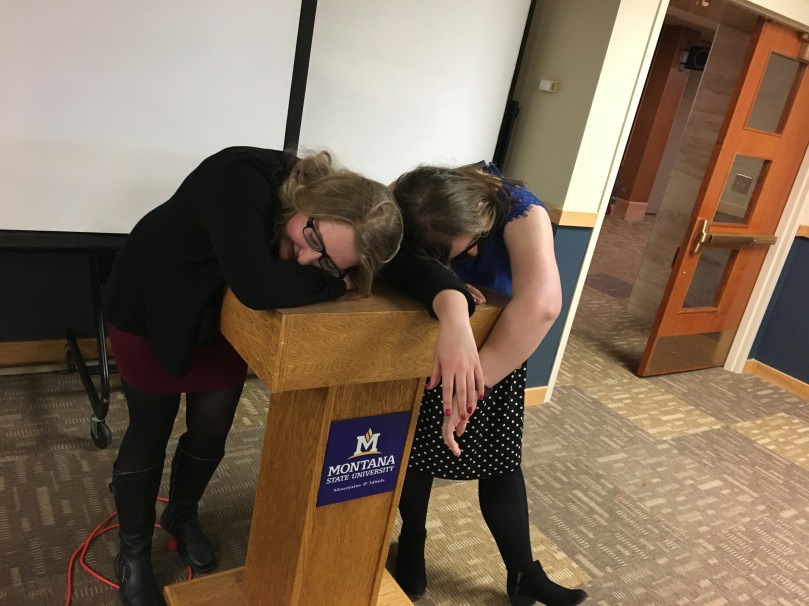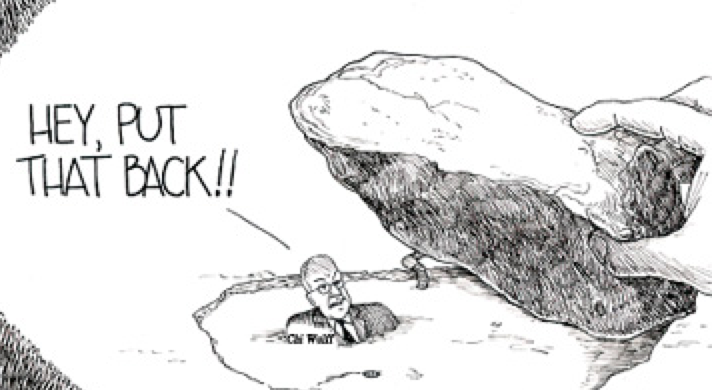Post my weekend where I’ve come out wondering what will make me a real human being again… I’m met with finishing this book (an uber fast finish) and the views of Katie and Ram after finishing the book! (My feature image isn’t for the text specifically, just my general state of life right now) Wow, oh wow. (And if anyone has any help to regaining personhood and mental capacity post finally completing big long-term projects, please let me know! Or if you have any tips on finding out a grandparent has died from a Facebook post instead of your parents. That’d be helpful too.) I’m kinda left feeling like:

In her post, Katie states: “Living under a rock seems the only way to avoid biased stories and information, thus making it impossible to stay informed as to facts at the same time. Manjoo only hints at in the earlier chapters, but there is also the occasion where we use our own experience to dictate I something is possible or true, linking with selective perception.”
This was definitely one of the larger take aways I saw in this book as well. But less in a bitter way, I can think of it more in the aspect of understanding the world around us and how it works and bringing skepticism into it. There are no great answers on how to deal with anything ever. But I certainly think that the work Manjoo is doing in this text is to elicit that response.
In Ram’s post, I really wanted more about partisans. Historically, it’s been pretty obvious the moments when people were out-rightly opposed to partisan behaviors and dichotomizing. And right now, post factual everything comes up everywhere casually. However, I think that Ram brings up a really good thing when it comes to the different ideas of “particularized trust” and “generalized trust.”
Manjoo states that: “Particularized trust can’t be captured well by surveys, so there is little data on whether it’s advancing in the United States” (225). Particular trust deals with people who are inherently similar to us. Generalized trust deals with people we see as different than us. It seems to all deal with bias in a way that’s not completely specific to our full-hearted choices. This makes me think about research being done on implicit biases.
I think the purpose of this all is to be skeptical and think critically. Things we probably should have been doing all along. It’s to not just take things at face value. Most people are well aware the memory is a dud, so why should we go all out and truly believe what other people are saying and projecting out there. In a world with alternative facts… should we have been trusting the information before now? I can barely tell what’s a dream, a memory, or something that I’ve thought up and written fictionally. I know it’s more complicated than that, but should we have even been going blindly through media consumption beforehand anyway? When things were “factual,” should we have believed them?
I guess that’s why we need to think about these things too.


I had planned to write how partisans are cause factor of biased media, but ended up with something blur. I have experience with partisans since a long time. Blind following or prejudiced to a particular side keeps you in dark, far away from the reality. Partisans don’t want to listen other side; how can they judge somebody without seeing the both sides. A firm adherence to a politician and a press, encourage them to do what are they doing, whether it is good or bad. Why will they change their notion if they are known that some blinds are behind them. A yummy dish doesn’t guarantee a good health, so try bitter taste if it is good for health. Don’t remain in dark by being a partisan.
LikeLike
You always use images so well! Your post brought to mind how partisan groups often use things like surveys in order to say “this many percent of Americans agree with our view on blank!” and it’s crazy because both sides always have a percentage that support their view. I think trust is really important, especially when the majority of Americans want the same thing on a certain issue. Often the details become more important than the whole and it becomes a pissing match rather than a mutual understanding based on trust. I think your rock image does a great job of getting at the reinforcing biases through our perceptions as well.
LikeLike